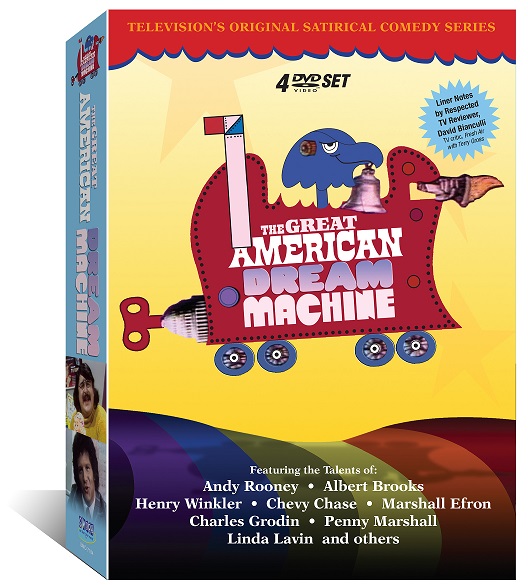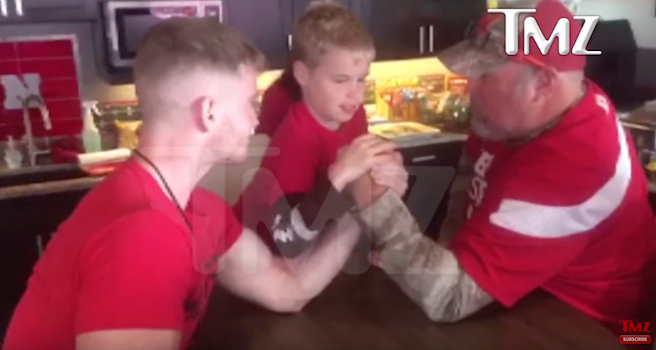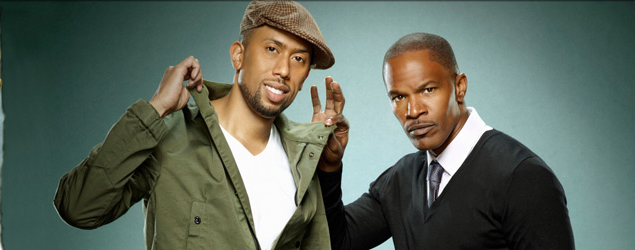Four years before Saturday Night Live, and three years before Monty Python’s Flying Circus would land on this side of the pond, New York City’s public television station Thirteen put a spotlight on great young comedians and actors who’d become ready for primetime soon enough.
A pastiche of patriotic medleys played as animation the likes of Terry Gilliam would likely have approved danced across the screen, displaying not just racial harmony, but also having an Army soldier’s gun shoot flowers instead of bullets. The first pair of faces we saw on this what-is-this-show are miming or lip-syncing their mouths to noises, white made-up faces against a black screen. But one of the faces feels awfully familiar. Is it? Could it be? Chevy Chase? He’s alongside Ken Shapiro. Together, they’d make The Groove Tube movie in 1974.
But here they were helping introduce a generation of TV viewers to The Great American Dream Machine.
For the first time, the complete PBS series is available as a four-disc set. The Great American Dream Machine set the standard that broadcast and cable networks would strive for in decades to come, from early reality programs on TV or radio such as Real People to even The Daily Show and This American Life. Humorist Marshall Efron hosted, and in between on-the-street interviews with New Yorkers and other Americans asking them what the “American Dream” meant to them in the early 1970s, the show would take swift turns into the satirical or the surreal — giving viewers a full messy portrait of how the United States looked and felt back then.
Segments on the first DVD jump from a profile of Evel Knievel, to a commentary about olive sizes on cans, to a cartoon short about an opera-singing pig, to a documentary segment about demolition derbies.
These episodes come in four DVDs, not digitally restored, so you really feel the weight of time, even if some of the comedy remains timeless.
Albert Brooks made his directorial debut on The Great American Dream Machine in 1972 with his famous short film, Albert Brooks’ Famous School for Comedians, paving the way for his SNL shorts, and later, his big-screen efforts. Andy Rooney began delivering commentaries here before he spent decades speaking his mind to an even larger nationwide audience on 60 Minutes. Elaine Stritch performed a song from her Broadway role as Joanne in Stephen Sondheim’s “Company.” Amy Vanderbilt talked openly about getting cosmetic surgery. Sheila Nevins hit the streets with a camera crew for the first time for this series — she since has become head of HBO Documentary Films, and she’s hauled in 21 Academy Awards, 29 individual Emmys and 59 Emmys overall, and works collecting 31 Peabody Awards. Charles Grodin made shorts for it, you can see Henry Winkler before he was “The Fonz,” and hear from Carly Simon, Studs Terkel, David Steinberg, Penny Marshall and more.
It’s quite a collection.
You can buy The Great American Dream Machine four-disc set via Amazon and other retailers:



